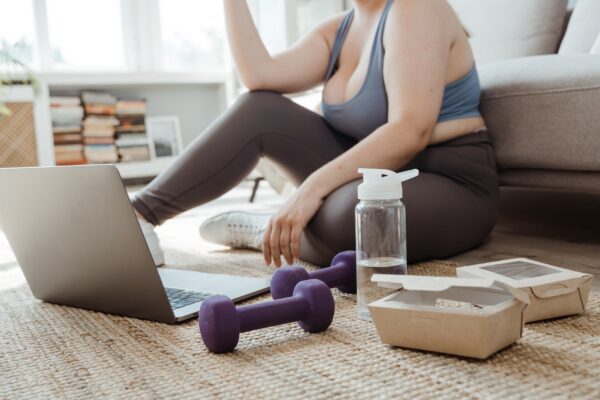At The Banyans Health and Wellness, our multidisciplinary approach to recovery promotes balanced and holistic health and wellbeing. This type of lifestyle is not only beneficial when trying to overcome mental health challenges, adverse life circumstances or addiction, but has proven to be incredibly beneficial in maintaining physical health.
“The body, mind, soul and spirit is inextricably linked,” says Peter Hayton, Clinical Director and Senior Psychologist at The Banyans Health and Wellness. “A disruption in one part of our being is frequently correlated with a disruption in another.” He suggests this is one reason why it is so important to pay attention to all parts of the self and our wellbeing.
The research field has devoted a significant portion of attention into physical immunity, investigating the many different aspects contributing to one’s ability to fight illness and disease. Similar to Peter’s perspective on holistic health, science suggests that many factors contribute to our overall physical health. Below are five wellbeing habits that can help boost your immunity, and help you kick sick before it even arrives!
Sleep
In a comprehensive review of scientific research, scientists Motivala and Irwin (2007) describe the undeniable connection between sleep and immune system functioning[i]. The study shows that “extended periods of wakefulness have dramatic consequences on the body’s ability to fight pathogens”.
Although many of us are unlikely to go multiple days without sleeping, even brief periods of sleep deprivation can affect immunity. For example, one study reported that participants who only engaged in four hours of sleep per night for four nights before being exposed to an influenza virus produced poorer immune response “as compared to subjects who had regular sleep across the same period”. They also reported that even slight sleep deprivation (between 4-8 hours sleep per night) also showed reduced immune response, and therefore greater likelihood of sickness.
In the book Sleep Smarter, Dr Sara Gottfried reflects on the benefits of improved sleep. She lists:
- Release of growth hormone, which is responsible for muscle repair, maintenance and decreased fat;
- Decreased risk of stroke and cardiovascular disease;
- Enhanced function of the immune system and lower risk of cancer and infection;
- Hormonal balance;
- Lower levels of inflammation and pain.
Wellness tip
Author of Sleep Smarter,Shawn Stevenson, gives 21 strategies that can help improve and restore sleep balance. Exposure to sunlight specifically “triggers your body to produce optimal levels of daytime hormones that regulate your biological clock.” He recommends at least 30 minutes of outdoor sunlight each day, preferably between 6:00 am and 8:30 am for the greatest benefit.
Regular Exercise
Exercise Physiologist at The Banyans, Ryan Barber, is a huge advocate of regular exercise for improved health and wellbeing. “Exercise has direct benefits on your immune system, but also on sleep, nutrient absorption, weight regulation, muscle strength and emotional health. All of these things are also known to be beneficial in fighting sickness and maintaining good health.”
Scientific research supports Ryan’s holistic perspective, with studies showing that light to moderate exercise is extremely beneficial in promoting healthy immune responses, especially in older adults. Similarly, it has also been reported that “people who exercise 2 or more days a week have half as many days off school or work due to colds or flu as those who don’t exercise” as regularly.
Wellness tip
Ryan encourages people to simply start small when it comes to exercise. “A lot of the benefits of exercise on immunology is from deeper breathing, movement and circulation. A great way to get started is simply by going for a light 10 minute walk. A few days later, increase this to 15 minutes, and eventually up to half an hour. As you begin to enjoy physical activity and the benefits it brings to your physical and emotional wellbeing, you may begin to branch out and look at other methods of exercise.” He suggests that a personal trainer or group class can be great starting points.
Balanced Nutrition
“An apple a day keeps the doctor away!” may be more true than you thought. Not because apples are a “super food”, but because when it comes to health and immunity, prevention or preparation is better than cure.
Clinical Nutritionist Lisa Cutforth, attributes an unbalanced diet as one of the strongest contributors to ill-health. “Most people don’t realise that your gut health forms a key component of your immune system. A healthy gut, and a healthy diet therefore help create your first defence against illness and your best chance at overall wellness.
Many people head to straight to the pharmacy when they begin to feel unwell, often reaching for the “sickness staples”: Vitamin C tablets, Elderberry throat lozenges or Olive Leaf solution. Lisa educates that a healthy diet gives you great immune protection and overall wellness for two reasons. She says that “it gives you the building blocks you need to fight infection and prevent infection and be strong, and it helps to keep your gut healthy.”
A healthy diet gives you the nutritional building blocks you need to be well. For example vitamin C (found in blueberries and oranges and kiwi fruit) and zinc found in seafood and fish can help ward off a viral infection and vitamin D helps your body fight antimicrobials. Your diet provides the fuel your body needs to run efficiently.
If you are lacking in the necessary components of your diet, your body will not have the tools it needs to withstand the threat of sickness.
“A compromised gut or microbiome can make you more prone to illness for a number of reasons, whereas a healthy gut microbiome offers your first layer of defence against pathogens,” Lisa explains. “ Eating enough nourishing foods and staying away from foods that don’t agree with your body or that could lead to a leaky gut is key to supporting your immune system.” Everyone is different so it’s important to practice personalised nutrition where you focus on eating the foods you need and your body tolerates well.
Until your body has absorbed the nutrients from your diet, they aren’t benefitting your health. That is why at The Banyans, we run a variety of genetic tests to identify deficiencies and processes affecting nutrient absorption. Lisa recommends seeking advice from a nutritionist or dietician if you are concerned about your nutrition status.
“If you get sick but you are generally healthy, you will also recover quicker with good nutrition,” Lisa notes. Stress can also affect immunity and compromise digestion. “So it is important to slow down and make time to eat well if you want to be well.”
Unfortunately, most of us wait until we are sick to focus on our health. Doing a little every day like eating plenty of fruit and vegetables and enough healthy protein and fats will give you everything you need to build a good foundation.
Wellness tip
Meal planning can be a great way to help you ensure that you are eating a variety of balanced, nutritious meals. Doing so allows you to be more intentional with your meals, and can encourage positive dietary habits. For some further help, view Lisa’s meal planning tips here.
Positive Emotional Health
When our emotional health begins to decline, changes in diet, energy and physical activity can also contribute to reduced immune functioning, and thus, susceptibility to disease.
Peter Hayton, the senior psychologist and Clinical Director at The Banyans Health and Wellness explains that “our emotional health is in some way, the foundation for our physical being. If we do not feel settled and content emotionally, it is likely to play out in another area.”
Stress is one of the most detrimental emotional conditions affecting physical health. Research has shown that stress reduces your immune response and ability to respond to pathogens; particularly through the suppression of immune function, and the increase in hormones that cause inflammation of tissues.
Wellness Tip
Rest and relaxation is vital in maintaining your emotional health. Each day, take a few minutes to implement a healthy self-care activity that helps you feel relaxed and energised. This could be spending time with your family, walking your dog, having a longer shower or getting a haircut. Mini-breaks and holidays should also be a priority, in which you take time out to allow yourself to recharge.
Strong Social Connection
Social wellness and the need to share life with others is one of the dimensions of wellness described by Dr. Bill Hettler, the founder of the National Wellness Institute. In a previous blog, The Banyans described social wellness as a human need for connection, and one’s ability to create a strong social network through appropriate communication, mutual support and meaningful relationship.
Research has shown that isolation is a heartbreaking and debilitating situation that has profound influences on the functioning and immunity of the human body. Some studies have shown that people who lack meaningful relationships are at higher risk for depression, heart disease, and strokes. Social isolation also increases an individual’s risk of mortality by 29%, even when controlling for factors such as age and illness. Furthermore, a lack of social connection has been demonstrated to be a greater detriment to health than obesity, smoking, and high blood pressure.
One 2005 study in the journal Health Psychology discovered that college students with the lowest scores of social connectivity displayed the lowest antibody response to exposure to influenza virus.
Similarly, Peter Hayton comments that many sicknesses – whether they be viral (like influenza) or deeply underlying – can take root more easily when one is lacking emotional support and social connection. “Being supported by a network of friends and family plays into the emotional health we were talking about earlier.”
Wellness tip
Spending time in the presence of others is the best way to build meaningful relationships. Perhaps inviting some friends over for dinner or going out to an activity can be both relaxing and socially enriching.
[i]Motivala, S. and Irwin, M. (2007). Sleep and Immunity. Current Directions in Psychological Science, 16(1), pp.21-25.





